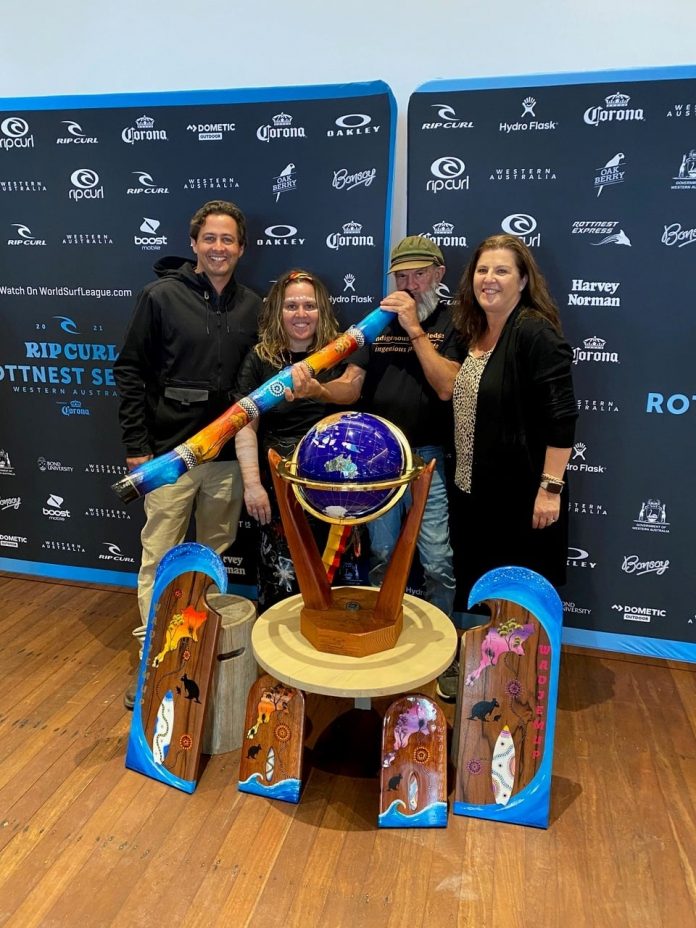Reports of the death of the Noongar language have been greatly exaggerated. With apologies to Mark Twain.
It’s a phrase that Noongar elder and language specialist Len Collard says, has no basis in fact.
He dismisses reports about how few Noongar speakers are left and the demise of the culture of Australia’s south western Aboriginal groups.
Len breaks out into Noongar to demonstrate just how alive the language is.
And rather than Europeans rediscovering the language, Len says it has never disappeared and it’s rather more the case of Aboriginal languages taking over English.
“For some reason or another people have this idea that Noongar language is all broken down and screwed up and it’s been colonised and beaten to a pulp,” he says.
“It’s only a figment of people’s imagination because that’s not really what’s going on. Noongar language is healthy and wealthy and going along beautifully.”
Len, a Professor at the University of WA’s School of Indigenous Studies, believes when people say there are no Noongar speakers they are talking about an Australian Bureau of Statistics survey that asked what language people speak.
The ambiguous nature of the question doesn’t encourage people to nominate Noongar as a response.
But he says it’s a language that’s spoken every day and non-Indigenous people speak Noongar every day.
“If people grew up in the South West on the Noongar Boodjar (land), they can’t operate or communicate unless they are drawing on our language.
“If they are old farming families, for example, they would have all lived in a place with a Noongar name whether it’s Pinjarra, Mukinbudin, Quairading, Kellerberrin or Mandogalup, they are all Noongar places.
“The majority of place names in South West Australia have Noongar origins. Colonial names for places like Perth and Fremantle are the minority, but people talk like they are the majority.
“This is Noongar country, the majority of places are ours, so the Noongar language has not fallen into disuse. It never fell into disuse at any time because not only Noongars use it but wadjelas (white people) use it too.
“The irony of it is that people talk about how the Noongar language might be in a poor condition, but the reality is that English is in a poor condition in this country because Noongar is overwhelmingly involved in manipulating and assimilating English into our language and into our country.
“Even oldies, as kids, when they went down to the river to catch a crab or go skin diving, would have grabbed their mask, flippers, snorkel and their gidge. Gidge is a Noongar word that means a spear.
“If I have English people in my classes at uni or on the tours that I operate, the English we speak isn’t the same as Mother England’s English.
“Today’s Australian English, has been heavily manipulated and influenced by Noongar where we live in South West Australia. Hence when I speak to English students or tourists they don’t always understand what I’m talking about.
“Whereas an Australian of English, Irish, Welsh or Celtic background, who grew up in our country will know what we’re saying.”
Len asks what the English word is to describe the tuart tree – and of course there isn’t one – it’s a Noongar word.
“The Noongars colonised the minds of Europeans a long time ago, but they did it so sneakily with smoke and mirrors so that they didn’t understand what was going on – and they still don’t.
“They live in our country and think they speak English, but they actually speak Australian.”
Len believes it is useful for anybody living in any country to be able to speak the local language.
“My wife and I have travelled to Indonesia a lot over the years, like everybody, surfing in Bali and what not. Later we invested in a development up in Lombok and built a villa up there, Villa Collard, awfully colonial.
“We’re outsiders, the word up there for an outsider is ‘bule’, which could be a white person or just a stranger, but we’re outsiders, I’m not an Aboriginal, I’m an outsider.
“The point is if we’re going to spend money and do work there, we’d better learn how to speak their language because if we don’t they could be laughing at us, calling us names and making nasty comments about my wife and me. We’re standing there smiling saying ‘isn’t that lovely they’re speaking their Aboriginal language’.
“The point is, today in the South West there are thousands on thousands of Noongar place names, so if you’re going to live here it’s probably a good idea to start brushing up on your Noongar, otherwise people might be talking about you and making fun of you and making comments about your missus, and you’re standing there smiling and saying ‘isn’t that beautiful, this Aboriginal language’.”
Len says it couldn’t hurt for non-Indigenous people to learn a bit more conversational Aboriginal language. It could help build better relationships between cultures.
“That would be a fine outcome if people learn to speak the same language and be on the same page when they are communicating with one another.”
Len says for people wanting to find out more about Aboriginal culture it was well worth visiting the WA Indigenous Tourism Operators Council website www.waitoc.com/ to check out some of the tourism experiences available.
See page 2 for our new monthly section translating Noongar words
































